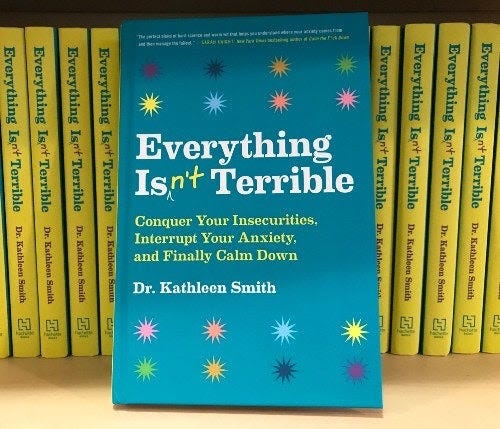Are You Directing or Reflecting?
How to be an ambassador for yourself.
When you’re close with someone, it’s easy to treat them like they’re an extension of yourself. You might act as if your family, friend group, or workplace is one giant blob of humanity. Because if the blob is anxious, you feel anxious. If the blob thinks that Bob from accounting is a mess, then yeah, maybe you do too.
The fancy word for this stuck-togetherness is emotional fusion. When fusion is strong in relationships, more of our decisions are influenced by how other people might react (or have reacted). It becomes difficult to know your own mind, what you believe and value. Your choices quickly become about stabilizing the blob instead of following your best thinking.
The more fusion there is in relationships, the more we tend to treat people like they are ambassadors representing us. You might worry more about your boyfriend’s fashion choices, how your parents act in public, or how well your kid performs in school, because these variables have become a direct measure of your own worth.
I’ve always admired those people who can let others operate like individuals. People who let their parents give terrible, rambling wedding toasts. They don’t automatically jump in to overhaul a sibling’s resume. They let friends with different political persuasions encounter each other. They allow a coworker to do a task less efficiently than they would.
It’s only human to try to adjust others to calm things down and maintain our image. But how successful is this strategy? It often makes couples more allergic to each other. Or it makes relationships deeply uneven, with one person taking on more of the responsibility and eventually resenting it.
When you feel the impulse to manage others, it can be useful to ask, am I directing or reflecting?
Directing could look like:
Asking others to change so you’ll feel calm.
Being over-responsible for people’s behaviors.
Teaching others how to behave better.
Needing others to think or feel what you think or feel.
Reflecting could look like:
Calming yourself down.
Letting people be responsible for themselves.
Thinking about how to respond to people’s immaturity.
Communicating your thinking without managing the reaction.
Let me give you some examples.
Directing: Teaching your partner how to dress.
Reflecting: Learning to feel comfortable with your own appearance.
—————————
Directing: Telling your mother how to be a better listener.
Reflecting: Thinking about how you’d like to respond when your mother interrupts you or someone else.
—————————
Directing: Quickly fixing your child’s distress by any means necessary.
Reflecting: Practicing staying calm and present when your child is upset.
—————————
Directing: Making sure all your friends are having a good time.
Reflecting: Calming down so people have a better chance of enjoying themselves.
—————————
Directing: Telling your sister to dump her love interest.
Reflecting: Being curious about how she will navigate a challenging relationship decision.
These changes can sound simple, but they are so difficult to activate in real time. We put so much effort into herding others towards our thinking, rather than reflecting that thinking in how we conduct ourselves. Often because it’s easier and more automatic.
It’s true that you are a representative of larger systems, like your family, an organization, or even your country. But what would it look to begin to be an ambassador for yourself? A representative of your own best thinking about how to live a good life and how to treat others?
De-blobbing yourself, or what Dr. Bowen called working on differentiation, doesn’t mean you have to distance yourself from important relationships. In fact, it often makes those relationships more enjoyable. When we give ourselves the opportunity to live from the inside out, we allow others do the same. We can be on the same journey together, even if each person takes their own path. And what a relief that is.
News from Kathleen
My book, Everything Isn’t Terrible, is on sale on Amazon for $2.99 (Kindle version). Grab it and/or tell your friends.
Over on Medium’s Forge Mag, I wrote about why confidence may not be the solution to imposter syndrome.
Want to support my free newsletter? Buy me a coffee to keep the thoughts flowing.
Want to read more of my writing? You can read my weekly essay for Medium’s Forge Magazine, read old newsletters at my website, or buy my book Everything Isn't Terrible from Amazon, Barnes and Noble, Indiebound, or anywhere you buy books!
Want a free anxiety journal? Calming Down & Growing Up: A 30 Day Anxiety Journal includes thirty daily prompts to help you reflect on and respond to your anxious behaviors. To receive a copy, submit a copy of your receipt for my book at the Hachette page. Or you can email me.
Follow me on Twitter, Facebook, or Instagram, or email me if you have questions about my therapy practice in Washington, DC, virtual Bowen theory coaching, or having me speak to your group.
Want to learn more about Bowen theory? Visit the Bowen Center’s website to learn more about their conferences and training programs.



